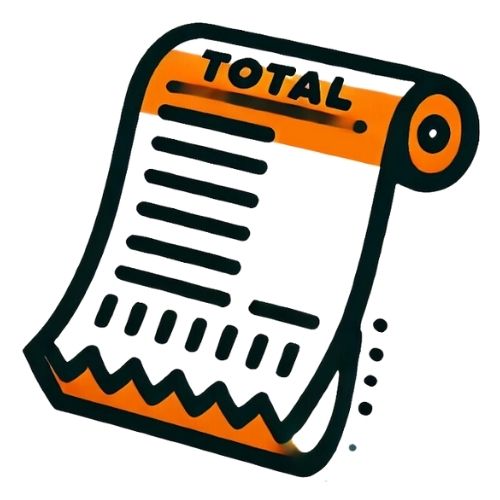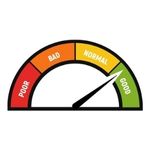
Blacklisting occurs when an individual or business is flagged as a high-risk borrower due to poor financial behaviour, such as missed payments or defaults. This status can create serious barriers when applying for credit, securing rental agreements, or even seeking employment in roles requiring financial trustworthiness. Although the term ‘blacklisted’ is widely used, it is often misunderstood. Many South Africans are unaware of how blacklisting works, what factors contribute to it, and the steps that can be taken to recover.
DISCLAIMER: This article is intended for general informational purposes only and does not constitute financial, legal, or professional advice. Readers are encouraged to consult a qualified credit expert or financial advisor for personalised assistance.
Key Takeaways
- Blacklisting Limits Access To Credit: Being blacklisted in South Africa can make it much harder to secure loans, credit cards, and rental agreements, but it does not permanently bar access to financial products.
- Blacklisting Results From Repeated Defaults: Common causes of blacklisting include missed loan repayments, court judgments, unpaid utility bills, and excessive debt levels recorded by credit bureaus.
- Blacklisting Can Be Reversed With Time And Action: Negative listings remain on a credit report for a specific period, but taking steps such as repaying debts, correcting inaccuracies, and maintaining good financial habits can improve your credit standing.
About Arcadia Finance
Apply with confidence through Arcadia Finance. You’ll pay no application fees and can compare offers from 19 fully compliant, NCR-registered lenders. It’s a quick, secure process designed to connect you with loan options that meet your unique financial needs.
What Is Blacklisting And How Does It Work?
Blacklisting refers to the practice of identifying individuals or businesses as high-risk based on their previous actions or financial conduct. This process involves gathering and distributing information that can influence whether an individual or business is granted access to certain services, products, or opportunities. Being blacklisted can significantly limit one’s ability to engage with institutions that require a positive reputation or financial reliability.
Credit blacklisting is the most commonly recognised type of blacklisting. It typically happens when a person or business has developed a poor credit record, often through missed loan payments, overdue credit card bills, or defaults on financial agreements. Financial institutions, including banks and lenders, rely on credit bureaus to review the financial history of applicants. If a pattern of missed payments or defaults is evident, the individual or business may be blacklisted. This status can make it extremely difficult to secure further credit, loans, or other financial products.
Factors That Can Result In Blacklisting
- Missing scheduled repayments on credit accounts.
- Defaulting on agreed loan obligations.
- Court judgements issued against you for outstanding debt.
- Non-payment of municipal services or utility bills.
- Outstanding tax liabilities left unpaid.
- Consistent late or missed payments on credit agreements.
- Submitting multiple credit applications within a short period.
- Carrying an excessive amount of unpaid debt.
- Returned debit orders or failed transactions recorded against your profile.
- Engaging in fraudulent financial behaviour.
- Breaching a debt restructuring agreement or failing to maintain a creditor-approved payment plan.
Understanding how credit information is recorded is key to managing and repairing your profile. Learn more about the major credit bureaus in South Africa and how they influence your financial standing.

How Blacklisting Affects Businesses
For businesses, the impact of blacklisting can be extremely damaging. A blacklisted company may find it difficult to obtain loans or access credit facilities, both of which are often essential for expanding operations, purchasing stock, or managing cash flow. Without sufficient access to credit, businesses may face challenges in sustaining their daily activities, which could eventually result in job losses or even closure.
Blacklisting can also severely harm a company’s reputation. Suppliers and business partners may be reluctant to work with a blacklisted company due to concerns over financial reliability and the risk of unpaid invoices. This reluctance can result in missed opportunities and a weakening of the company’s position in the market. For startups and businesses seeking growth, blacklisting can present a major obstacle to progress and development.
DISCLAIMER: We are a loan comparison platform, not a direct lender. We do not guarantee loan approval, as all credit decisions are made by the individual lenders.
How Blacklisting Affects Individuals
Being blacklisted in South Africa carries serious consequences for individuals. The most immediate effect is a reduced ability to access credit. This includes difficulties in obtaining personal loans, credit cards, and certain types of insurance products. Individuals who are blacklisted may struggle to finance the purchase of a home, buy a vehicle, or secure funding for education expenses. Beyond financial matters, blacklisting can create barriers in securing rental properties, as landlords often review credit reports before approving tenancy applications. Some employers, particularly those hiring for roles involving financial responsibility, may also perform credit checks, which could restrict employment prospects.
The emotional and social consequences of blacklisting should not be overlooked. Financial stress can cause significant anxiety, which may strain personal relationships and diminish overall well-being. The stigma attached to blacklisting can lead to social withdrawal, with affected individuals often feeling embarrassed or ashamed of their financial circumstances.
Steps To Take If You Are Blacklisted
Finding out that you have been blacklisted can be unsettling, but taking prompt and effective action is essential to reduce the negative effects and work towards restoring your financial standing. Below are key steps to follow if you are blacklisted in South Africa:

Examine Your Credit Report Thoroughly
If you have been blacklisted due to credit-related concerns, obtain a copy of your credit report and scrutinise it carefully for any inaccuracies or outdated entries. Should you find information that appears incorrect or unfair, immediately raise a dispute with the relevant credit bureau, providing all necessary supporting documents. It is important to monitor the progress of your dispute and ensure that it is finalised within the legally prescribed period.
Not all credit scores are created equal! Get the full picture by understanding the crucial difference between good and bad credit scores, and see where you stand today.

Settle Any Outstanding Debts
Where blacklisting is linked to unpaid accounts, it is advisable to take decisive steps to address these debts. Prepare a structured repayment plan and engage with your creditors to negotiate affordable repayment arrangements. Showing a commitment to settling your debts demonstrates financial responsibility and can gradually assist in rebuilding your credit profile.

Obtain Professional Guidance
If you are uncertain about the procedures for contesting a blacklisting or managing issues related to poor credit, it may be beneficial to seek help from professionals. Reputable credit counselling agencies or registered debt counsellors can offer tailored advice and assist you in handling your financial obligations more effectively, helping you work towards a healthier credit record.

Focus On Establishing A Positive Credit Record
Looking ahead, place emphasis on cultivating a strong credit history. This involves making regular payments on time, keeping debts to a minimum, and practising sound financial management. A consistent approach over time will contribute to improving your credit score and will enhance your ability to secure credit or finance when needed.
DISCLAIMER: Arcadia Finance is a loan comparison service and does not offer credit directly. Loan approval is at the sole discretion of the lenders we work with. Submitting an application does not guarantee approval.
How Long Does Blacklisting Last In South Africa?
The length of time that blacklisting information remains on your credit record in South Africa depends on the specific type of entry:
- Judgments: A court judgment against you can remain listed on your credit profile for up to five years, unless it is rescinded by a court earlier. If you settle the judgment debt, you may apply to have the listing removed before the five-year period ends.
- Adverse Listings: Information relating to missed payments or non-payment of accounts can stay recorded on your credit report for up to two years. This listing reflects payment behaviour and may influence your ability to access new credit during that period.
- Notices Of Default: Defaults can also be recorded for a maximum of two years. Once a defaulted debt has been paid in full, it is important to ensure the record is updated to show that the account has been settled.
It remains essential to review your credit report regularly, even after resolving any blacklisting matters, to confirm that all information is accurate and that your credit history properly reflects your financial status.
Common Myths About Being Blacklisted
Being Blacklisted Lasts Forever
A widespread misunderstanding is that once you have been blacklisted, you are permanently barred from borrowing money. This is incorrect. Negative listings such as missed instalments or court judgments remain on your credit record for a set period — typically between 12 and 24 months for smaller defaults and up to 5 years for more serious matters like legal judgments. If you consistently manage your finances and rebuild your credit profile, your record will gradually improve.
Blacklisting Means No Access To Credit At All
Although having a negative listing makes obtaining credit more challenging, it does not mean you are completely excluded from borrowing. Some lenders, particularly those specialising in bad credit loans, may still extend credit to you, though usually with higher interest charges. However, careful consideration is essential, as taking on costly debt without proper planning can worsen your financial situation.
DISCLAIMER: This website provides loan comparison services only and is not a credit provider. Loan offers, terms, and approvals are determined solely by third-party lenders. We cannot guarantee approval or specific loan terms.ot guarantee approval.
One Missed Payment Leads To Blacklisting
Missing a single payment will not typically cause an immediate blacklisting. Nevertheless, ongoing failure to meet your repayment commitments will eventually harm your credit rating. Many credit providers allow short grace periods or issue reminders before formally notifying credit bureaus. However, multiple missed payments will quickly result in a poor credit record, making future borrowing far more difficult.
Creditors Are Always To Blame For Blacklisting
There is a common belief that credit providers unfairly list customers as defaulters after minor mistakes. In truth, lenders must follow strict regulatory procedures before marking any account as defaulted. They are required to alert you of missed payments and provide an opportunity to resolve the matter before negative information is shared with credit bureaus.
You Can Instantly Pay To Remove Negative Listings
Caution should be taken when encountering services that claim they can immediately clear your credit record. Although legitimate credit repair agencies do exist and can assist in correcting inaccuracies, no reputable company can instantly erase negative entries without proper legal processes. Building a stronger credit profile requires time, responsible repayment behaviour, and consistent financial discipline — not shortcuts.

Conclusion
Being blacklisted in South Africa can present serious financial and personal challenges, affecting access to credit, housing, and employment opportunities. However, blacklisting is neither permanent nor insurmountable. With careful financial management, responsible repayment practices, and, when necessary, professional assistance, it is possible to rebuild a positive credit record over time. Regularly reviewing your credit report, addressing outstanding debts, and maintaining consistent payment habits will steadily improve your financial standing and restore your ability to access vital financial services.
Frequently Asked Questions
You can find out if you are blacklisted by requesting a copy of your credit report from a registered credit bureau such as TransUnion, Experian, or Compuscan. In South Africa, every consumer is entitled to one free credit report per year, which can be used to check for negative listings and assess your credit standing.
The duration depends on the nature of the listing. Negative payment information and defaults usually remain recorded for up to two years, while court judgments can stay listed for as long as five years. If you settle the debt linked to a judgment, you may be able to apply for early removal through legal processes.
Yes, although it is more difficult. Some lenders specialise in offering loans to individuals with poor credit histories. However, these loans often come with higher interest rates and stricter repayment conditions.
Settling debts is an important step towards improving your credit profile, but listings do not automatically disappear upon payment. You may need to apply to have a judgment rescinded or wait for the listing to expire according to the credit bureau’s rules.
Legitimate methods to improve your credit record involve correcting any errors through formal disputes and consistently demonstrating responsible financial behaviour. No reputable organisation can instantly erase accurate negative information, and any service claiming otherwise should be approached with caution.
Fast, uncomplicated, and trustworthy loan comparisons
At Arcadia Finance, you can compare loan offers from multiple lenders with no obligation and free of charge. Get a clear overview of your options and choose the best deal for you.
Fill out our form today to easily compare interest rates from 19 banks and find the right loan for you.




